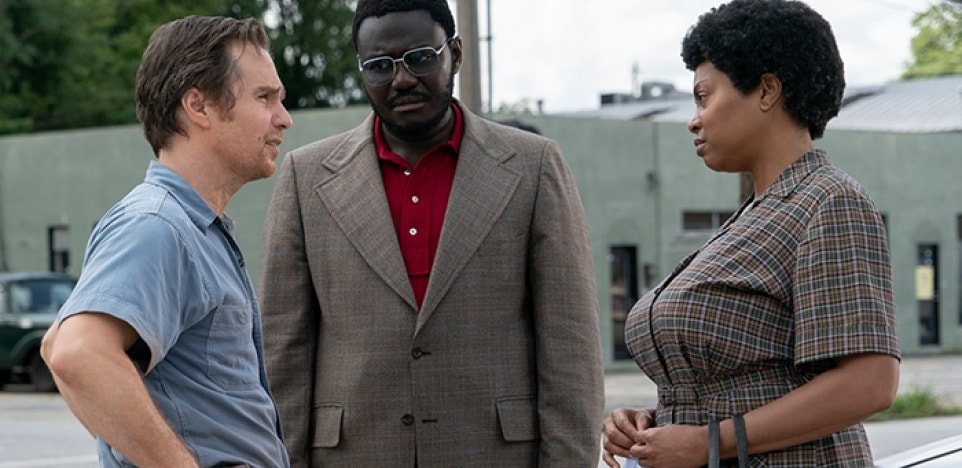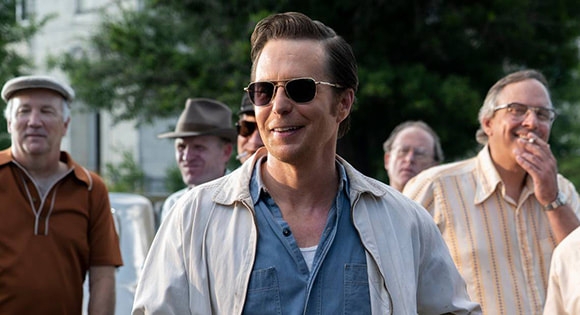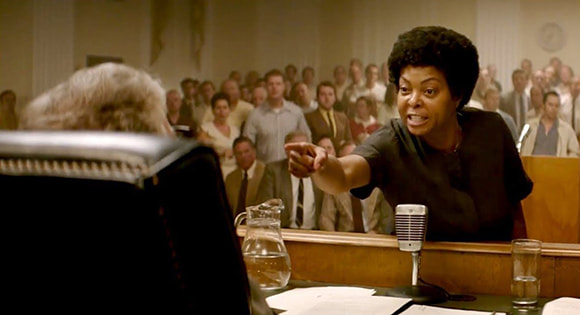The Best of Enemies
Directed by Robin Bissell
Reviewed by Frederic and Mary Ann Brussat
reposted from Spirituality and Practice
"When two enemies are talking, they're not fighting."
— Daryl Davis, American musician
White supremacy — the belief that white people are superior to other races and have the right to dominate them — is alive and well in the United States. Americans are struggling to understand the roots and persistence of this insidious belief that is behind so many injustices being perpetrated on minorities, especially blacks. Movies have shown us many examples of the effects of racism and community strife. But very few films have dramatized effective ways out of the quagmire. How can hearts and minds be changed? How can enemies be transformed into friends?
In every community, there are people of hope and vision who dare to be bridge builders, crossing barriers created by long-term prejudice, distrust, and fear. Sometimes they don't know they have this potential until circumstances force them to take a stand. Such is the case in this story about the true-life friendship of an African-American community activist, Ann Atwater, and the president of the local chapter of the Ku Klux Klan, C. P. Ellis. Written and directed by Robin Bissell, the film is based on the bestselling book by Osha Gray Davidson.
The setting is Durham, North Carolina, in 1971. The schools in this city are still segregated, a situation that suits the white all-male city council and the very public presence of the KKK. C.P. Ellis (Sam Rockwell), who owns a gas station, oversees Klan meetings; he's established a Youth Corp and tells a new member that he now belongs to something bigger than himself. After one meeting, C.P. and his right-hand man Floyd (Wes Bentley) shoot up the house of a white woman who has been dating a black man.
In the black community, Ann Atwater (Taraji P. Henson) is fighting to bring attention to housing violations affecting black tenants. After finally getting a hearing at the city council, she and her supporters arrive to find the chamber filled with Klan members. Her distain of them, and theirs of her, are readily apparent.
What happens next surprises everybody. After a black elementary school is nearly destroyed by a fire, the community has to decide whether or it not to allow the black students to go to the white school. When the decision goes to a judge, he passes it back to the community by bringing in Bill Riddick (Babou Ceesay), a black organizer skilled in facilitating a "charrette." This is a nonviolence conflict-resolution process that involves convening community-wide meetings to discuss issues, choosing a representative "Senate," and developing resolutions to be voted on by the Senate.
Riddick needs two prominent spokespersons to co-chair the two-week-long charrette, and he asks Ann and C.P.; reluctantly, they agree to speak for their communities. Initially, neither trusts the other, and neither is willing to give an inch. C.P. is reminded of something in the Klan creed: "Failure to know your enemy gives them aid and comfort." Later, when Ann catches some black youth trying to remove Klan literature from the meeting hall, she tells them that the Klan has given them a window into how they think, and they had better read the pamphlets to try to understand.
Although we wished we could have been flies on the wall during some of the community discussions — small groups of mixed views talking together and even being forced to share tables in the lunchroom — the film focuses more on the personal relationship that develops between Ann and C.P. In a pivotal scene, a black parent disagrees with a statement that all parents want the same things for their kids: "Black kids have a whole different menu of pain that we can't spare them from. It's a helpless feeling." Later, Ann tells C.P., who has a son with Down's Syndrome in a local institution, that she knows he too sometimes feels helpless. She proves capable of both empathy with and kindness toward him. And he, in turn, begins to see her differently.
Relationships among individuals and in communities are largely the result of feelings. What feelings support white supremacy? A fear of losing power, a sense that one is a victim and others are getting ahead unfairly, and distrust of the stranger or "the other." The Best of Enemiesdramatizes antidotes to all these feelings. When Ann and C.P. are empowered by being able to share their views in the charrette, sense their mutual vulnerability and desire for justice, and learn that they have more in common than they ever imagined, they know they are equals.


